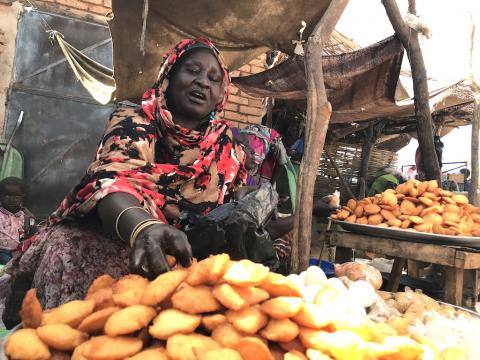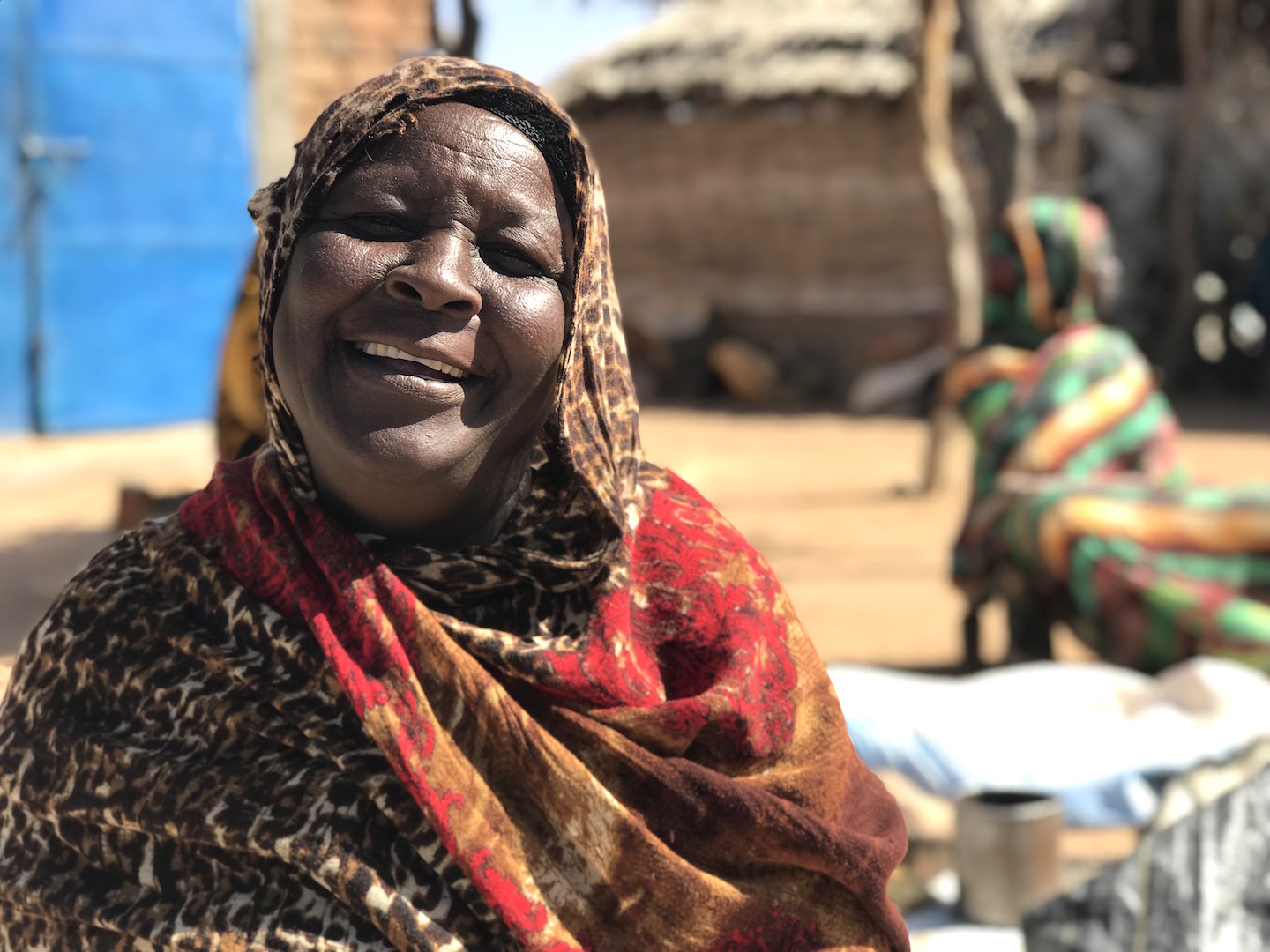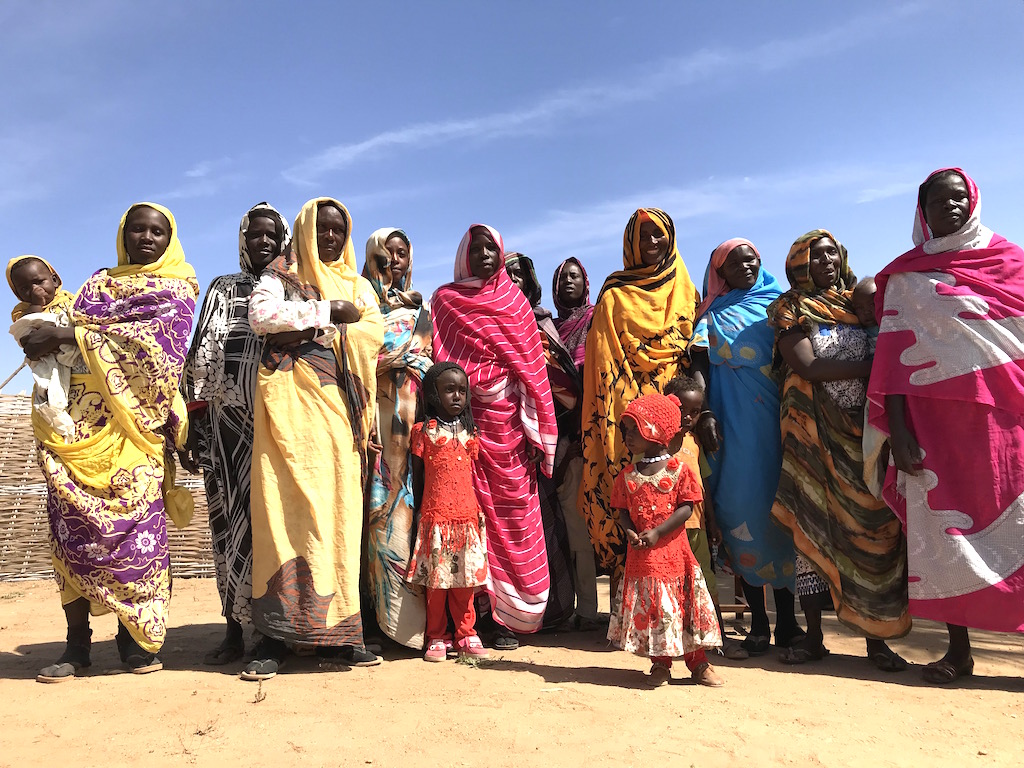Women in South Darfur lead the way towards community resilience through livelihoods

By Cecil Laguardia, Communications Manager
Fatima, 50 years old, said she knew how to cook the deep-fried bread tamiya, or a local pasta similar to a falafel, which is a staple in many Sudanese dining tables. “I learned it from my mother Asha when I was young. I also watched how she cooked it”, Fatima says.
When she attended World Vision’s livelihoods training, she realized she can make a good income out of her skills and more. A mother of six, Fatima said she has to find means to support her husband with the needs of her children.
She learned doing tamiya from her mother but Fatima's improved skills enabled her to earn bigger income.
“Education is our priority for our children. Next is building our house so they have safe shelter. After applying what I have learned from the training, our situation greatly improved. I learned so much and it also changed the way I work and market the tamiya I sell in the market”, she adds.
Fatima gets up daily at 5:00 in the morning and after getting everything ready at home, she heads to her small shop at the market where he works and sells from 8:00 am to 6:00 pm.
“I encourage all the women not to waste opportunities that they have. My life has been better than before because I learned and applied it so I can earn more income. Even the way I position the tamiya and sell them have improved – just putting them in a pan where people can see is not enough”, she shares. Every day, she earns as much as 500 SDG (US$10.41) which for her is substantial to provide for the family.
Sixty-year old Hawa was among the first to join the livelihoods training organized by World Vision in Duma Camp. A mother of three boys, she moves at different markets to sell different kinds of grains like millet. Hawa said the training helped improve her skills in selling the grains and even taught her other skills as a mother such as proper nutrition.
Hawa at her shop in the Duma market. Her goal is for her three boys to finish school and have better future.
“I got married young and took years before I had children. I work hard for them to finish their education and have a good future”, she says.
Around 200 people were trained in five areas in Duma, Juruf, Bulbul Timbisco Umlabassa and Kubum camps in South Darfur. The training includes market assessment, sustainability, market feasibility and savings box. After completing the activity, the participants has to choose what kind of income generating activity is suitable for their own household while looking at the capacity in their own families.
Aside from business skills, Hawa said she also learned other things like proper nutrition and the importance of education.
Together, they plan how to start, look at the risks and the cash flow and set-up the controls. With enhanced marketing skills, the participants will be able to improve the way their sell their products. The initiative is supported by the Ministry of Social Welfare and funding by the Government of Canada.
Multi-Sector Program Manager Alex Musili said many of the women have been empowered economically after joining the trainings and are able to help earn income for the families. “It is great so learn many of them can pay for their children’s school fees, medical expenses and afford to but nutritious food”, Musili says.
Over 200 people, both men and women, were trained on income generating activity to learn new livelihood and business skills in South Darfur.



